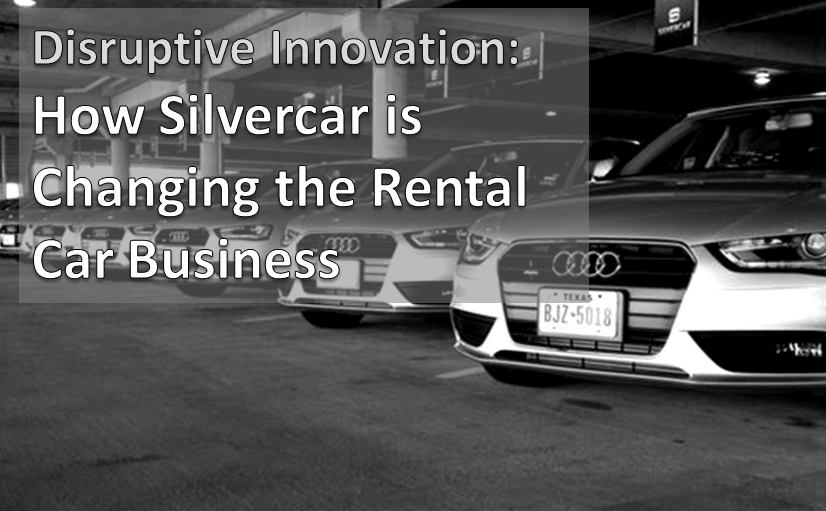It is a cycle we see too often: companies grow successful; an industry matures adopting many common practices, some good and some bad. Then these companies get complacent and fall asleep at the wheel. They stop innovating and often try to take advantage of consumers because of their position. And by doing so, they and create an opportunity for new entrants to disrupt the market.
It is easy to point at history and study how companies that were market leaders fell in this trap: Blockbuster, Motorola, Circuit City and Radio Shack are good examples. It is a lot harder to predict which markets or companies will be disrupted. But it is much more interesting to observe when it is actually happening in front of us.
This week I witnessed disruption in the rental car industry. I traveled to Dallas for a day and decided to give Silvercar a try. I am glad I did. How is the Silvercar experience better than the established companies who are asleep at the wheel? Let me recap my experience:
- Car rental companies charge $6 and more for gas. Why? Because they can. It seems like the entire industry forgot they are in the convenience business. This is exactly the kind of practices customer loyalty expert Fred Reichheld refers to as generating bad profits. Silvercar took another approach: they charge market rates plus a flat $5 re-fill fee. My receipt shows Silvercar charged me only $3.30 per gallon.
- After a short trip in Florida, my brother in law was charged $62. for missing to pay a few tolls. The toll fees were about a dollar or less, but every incident incurred in a $15 ‘convenience’ fee. Another example of bad profits. Silvercar includes an RfID tag in your car, you only pay for the toll itself.
- Silvercar offers a fleet of very nice Audi A4s, all silver, of course. This standardization, much like Southwest Airlines and their fleet of 737s, allows them to offer many customizations that may have been impossible with a diverse fleet and brings simplicity and cost savings to their operations.
- Each car comes standard with navigation, in-car WiFi, Satellite radio, Bluetooth and a sunroof. The car I got was an Audi quattro, which means it comes with four-wheel drive. This is not usually a big selling point for me, except this time it was snowing in Dallas. Having a four wheel drive car could have been the difference between making it to the airport and being stuck in a hotel room for a day.
- The company focuses on providing an exceptional experience through service and technology. A friendly concierge walked me to my car and explained everything. The car return address already has been set as a favorite in the nav system. An iPhone or a android app (Windows Phone please?) unlocks car. RFID sensors know when you return the car. Mileage and gas consumption information is sent wirelessly appearing in your receipt in your email in seconds – all fully automated. You leave the keys in the car, which locks itself after a few seconds.
Is this enough innovation to call it a disruption? I think so. Time will tell. Silvercar sounds like the Jetblue of the car rental industry. They are redefining the expectations for customers who rent cars. The company operates in LAX, SFO, DFW, AUS and Love Field as of today (February 2014), and is hopefully expanding to other airports soon. Want to give it a try? Enter code GDADA for a $25 discount on your first reservation.
Silvercar is just an example of disruption innovation in action. The question we ask ourselves is – why didn’t Avis or Hertz do this? Why didn’t companies like Enterprise, who try to be different, think about this?
What other markets are ready to be disrupted? I once read entrepreneurs see opportunities where other people see difficulties. Any industry where either the dominant players have forgotten about customer service, are abusing customers with convenience fees, or are delivering a poor experience is likely to be disrupted sooner or later.
Maybe the cable TV is next. Have you read about Aereo? The wireless industry comes to mind too. T-Mobile’s no contracts strategy seems like a step in the right direction. I switched my family a few weeks ago. What industries should entrepreneurs disrupt next?

